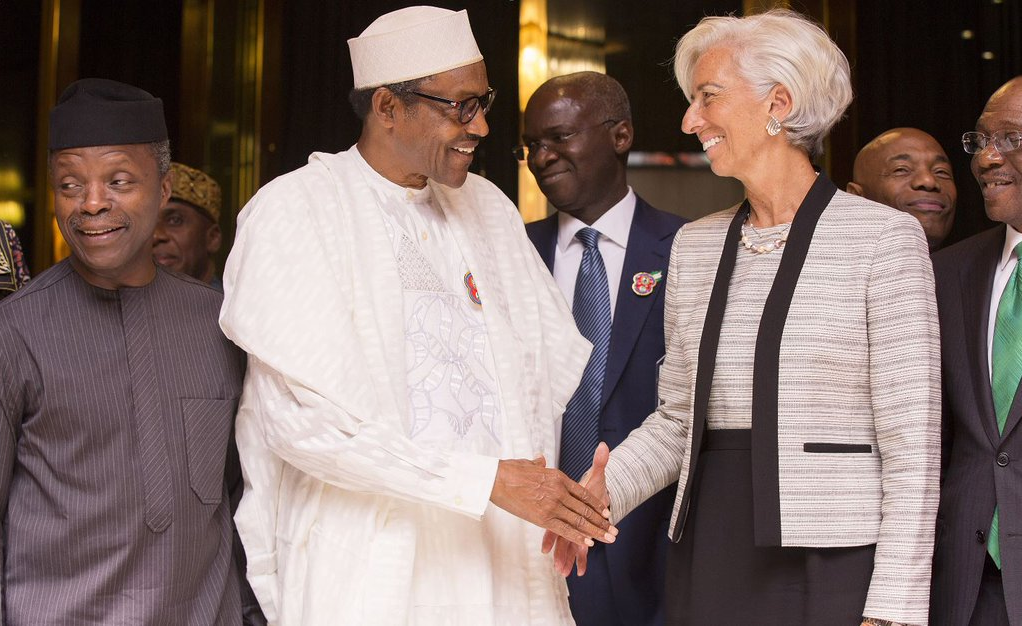There are no products in your shopping cart.
| 0 Items | £0.00 |

 NIGERIA has been advised by the International Monetary Fund (IMF) to ease on her borrowing as the country's debt to gross domestic product (GDP) ratio is too high to be sustainable over the long term.
NIGERIA has been advised by the International Monetary Fund (IMF) to ease on her borrowing as the country's debt to gross domestic product (GDP) ratio is too high to be sustainable over the long term.
At the moment, Nigeria has a gross external debt of about $40bn, while the country's GDP stands at about $450bn, given her an external debt-to-GDP ratio of about 8%. With global oil prices hovering around $70 a barrel, Nigeria's federal and 36 state governments are struggling to fund their infrastructural requirements so have resort to borrowing, which has made many of them debt-laden.
According to the African Development Bank, Nigeria has an annual budget deficit of $100bn and with the 2019 national budget being a mere $28.8bn, government revenue seriously lags behind requirements. Nigeria's states in particular are hard hit as most of them cannot generate enough revenue to meet their running costs, so need to borrow to even pay salaries and their debts subsequently keep growing by the day.
Warning that the country is storing up trouble for the future, the IMF said that although Nigeria's debt-to-GDP ratio is still good, it is risky and cannot be guaranteed going forward. Nigeria's debt-to-GDP ratio which stood at 21.1% early last year was projected to reach 25% at the end of 2018.
In a recent report, the IMF also made mention of the use of the funds borrowed, saying that the channelling of money to productive sectors is necessary to achieve significant impact on the economy. Tobias Adrian, the financial counsellor and director of monetary and capital markets development at the IMF, warned Nigeria about reckless borrowing at the World Bank/IMF 2019 Spring Meeting in Washington while presenting a Global Financial Stability Report.
Mr Adrian said: “Nigeria’s borrowing-to-GDP is still low but we cannot guarantee the risk going forward given the global economic downturn. The prudent use of the money borrowed is significant to improving the economy.”
On the global economy, he stated that political and policy risks such as an escalation of trade tensions or a no-deal Brexit, could affect market sentiments and lead to a spike in risk aversion. He advised that amid rising downside risks to global growth, policymakers should aim to avoid a sharper economic slowdown, while keeping financial vulnerabilities in check.
“Policymakers should clearly communicate any reassessment of the monetary policy stance that reflects either changes in the economic outlook or risks surrounding the outlook. This will help avoid unnecessary swings in financial markets or unduly compressed market volatility.
“In countries with high or rising financial vulnerabilities, policymakers should proactively deploy prudential tools or expand their macro prudential toolkits where needed. These countries would benefit from activating or tightening broad-based macro prudential measures, such as countercyclical capital buffers, to increase the financial system’s resilience," Mr Adrian added.
In addition, he pointed out that efforts should also focus on developing prudential tools to address rising corporate debt from non-banking financial intermediaries and maturity and liquidity mismatches in the non-banking sector. Mr Adrian said regulators should also ensure that more comprehensive stress tests, that include macro-financial feedback effects, are conducted for banks and non-bank lenders.
“Emerging market economies should ensure resilience against foreign portfolio outflows by reducing excessive external liabilities, cutting reliance on short-term debt and maintaining adequate fiscal and foreign exchange reserve buffers. Looking ahead, there is a risk that positive investor sentiment could deteriorate abruptly, leading to a sharp tightening of financial conditions," Mr Adrian added.